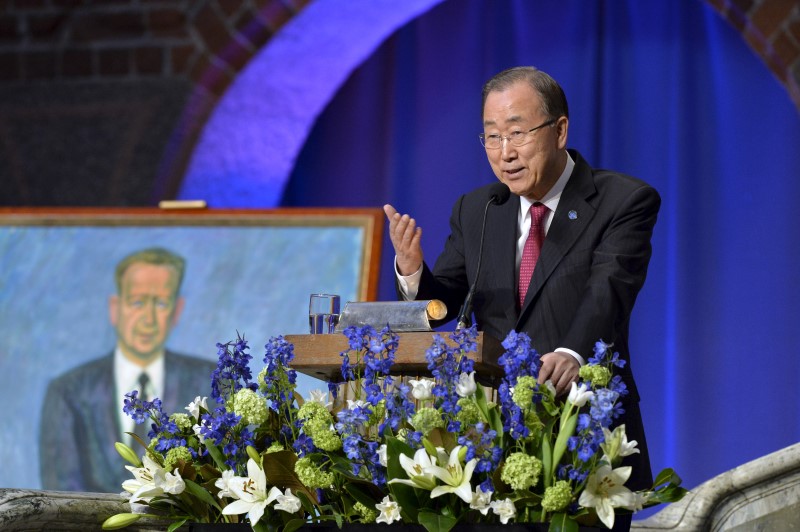
UN Chief Wants Review of Any New Details on Crash that Killed Hammarskjold
UNITED NATIONS (Reuters) – United Nations Secretary-General Ban Ki-moon recommended on Wednesday that the world body appoint an eminent person to review any new information uncovered about a 1961 plane crash that killed then U.N. chief Dag Hammarskjold. Hammarskjold – a Swede elected as the world body’s second chief in 1953 – was killed along […]

UNITED NATIONS (Reuters) – United Nations Secretary-General Ban Ki-moon recommended on Wednesday that the world body appoint an eminent person to review any new information uncovered about a 1961 plane crash that killed then U.N. chief Dag Hammarskjold.

Hammarskjold – a Swede elected as the world body’s second chief in 1953 – was killed along with 15 others while on his way to broker a truce in Katanga in what is now Democratic Republic of Congo. The plane crashed in Northern Rhodesia, now Zambia.
Ban told the General Assembly in July last year that a U.N. inquiry by an independent panel of experts found new information pointing to an aerial attack or other interference as the possible cause and that it warranted further investigation.
In a note to the General Assembly, released on Wednesday, Ban said the U.N. legal counsel had written to Belgium, the United States, Britain and South Africa to follow up on unfulfilled requests for information by the panel of experts.
Ban said responses from Belgium, the United States and Britain “do not appear to alter the conclusions reached by the panel, in particular in respect of its assessment that sufficient probative value exists to continue to pursue aerial attack or other interference as a hypothesis of the cause of the crash.”
He said South Africa had ordered that a search be undertaken for any relevant information, such as original documents that “apparently related to a purported ‘Operation Celeste,’ the stated objective of which was to ‘remove’ Hammarskjold.”
According to the three-member U.N. inquiry, copies of these documents were made public by the South African Truth and Reconciliation Commission on Aug. 19, 1998, but they were unable to be authenticated.
“If it is the case that original documents may now be available from South Africa, it may be possible to conduct forensic or other analyses to make a determination of their authenticity,” Ban said.
He recommended that an eminent person or persons be appointed by the U.N. to review any new information, including that which may be available from South Africa.
“Thereupon, the eminent person or persons would be in a position to determine the scope that any further inquiry or investigation should take,” Ban said.
(Reporting by Michelle Nichols; Editing by Tom Brown)